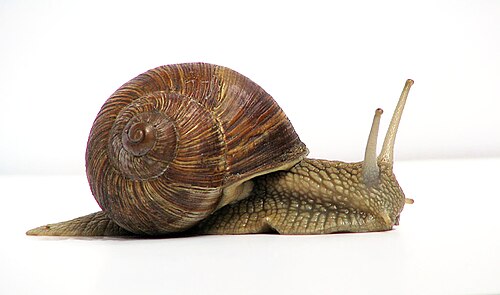Invertebratenoun
An animal without vertebrae, i.e. backbone.
Invertebratenoun
(informal) A spineless person; a coward.
Invertebrateadjective
Lacking a backbone.
Invertebrateadjective
Destitute of a backbone; having no vertebræ; of or pertaining to the Invertebrata.
Invertebratenoun
any animal lacking a backbone or notochord; the term is not used as a scientific classification
Invertebrateadjective
lacking a backbone or spinal column;
Invertebratenoun
an animal lacking a backbone, such as an arthropod, mollusc, annelid, coelenterate, etc. The invertebrates constitute an artificial division of the animal kingdom, comprising 95 per cent of animal species and about thirty different phyla.
Invertebrateadjective
denoting an invertebrate or relating to the invertebrates as a group.
Invertebrateadjective
irresolute; spineless
Invertebrate
Invertebrates are animals that neither possess nor develop a vertebral column (commonly known as a backbone or spine), derived from the notochord. This includes all animals apart from the subphylum Vertebrata.
Vertebrateadjective
Having a backbone.
Vertebratenoun
One of the Vertebrata.
Vertebrateadjective
Having a backbone, or vertebral column, containing the spinal marrow, as man, quadrupeds, birds, amphibia, and fishes.
Vertebrateadjective
Contracted at intervals, so as to resemble the spine in animals.
Vertebrateadjective
Having movable joints resembling vertebræ; - said of the arms of ophiurans.
Vertebrateadjective
Of or pertaining to the Vertebrata; - used only in the form vertebrate.
Vertebratenoun
animals having a bony or cartilaginous skeleton with a segmented spinal column and a large brain enclosed in a skull or cranium
Vertebrateadjective
having a backbone or spinal column;
Vertebrate
Vertebrates () comprise all species of animals within the subphylum Vertebrata () (chordates with backbones). Vertebrates represent the overwhelming majority of the phylum Chordata, with currently about 69,963 species described.













